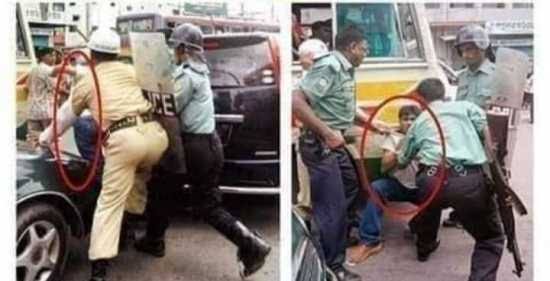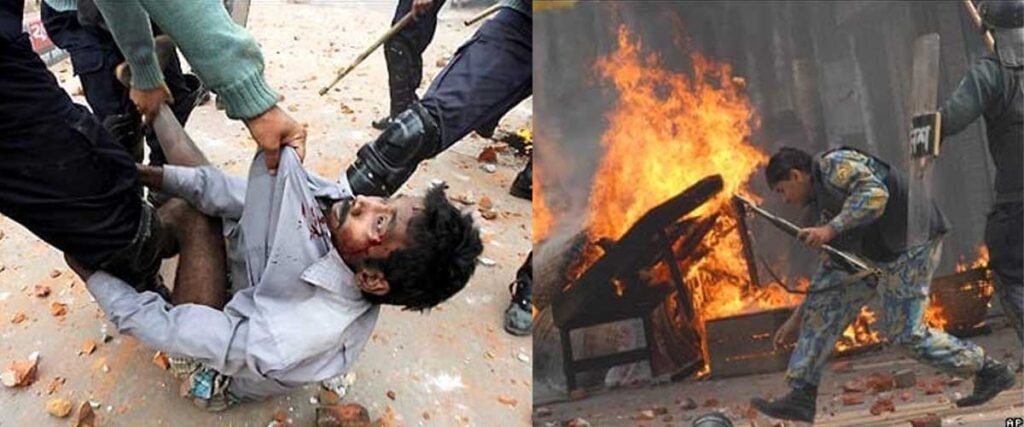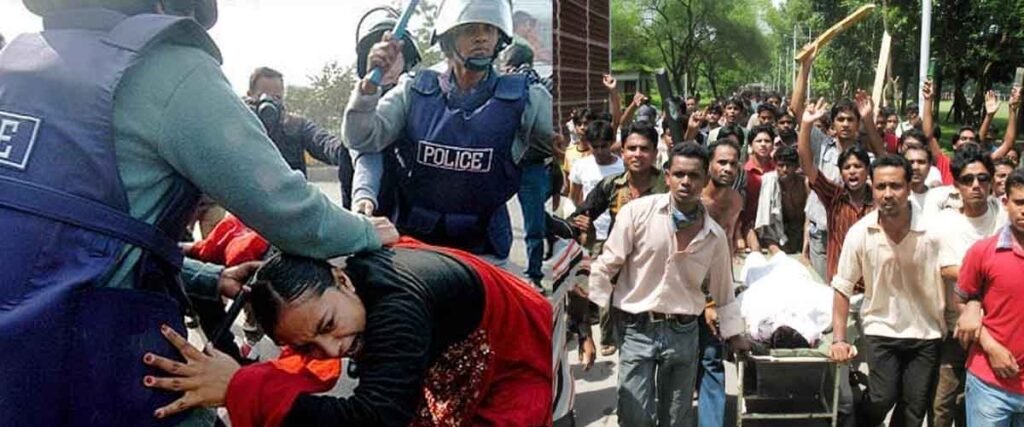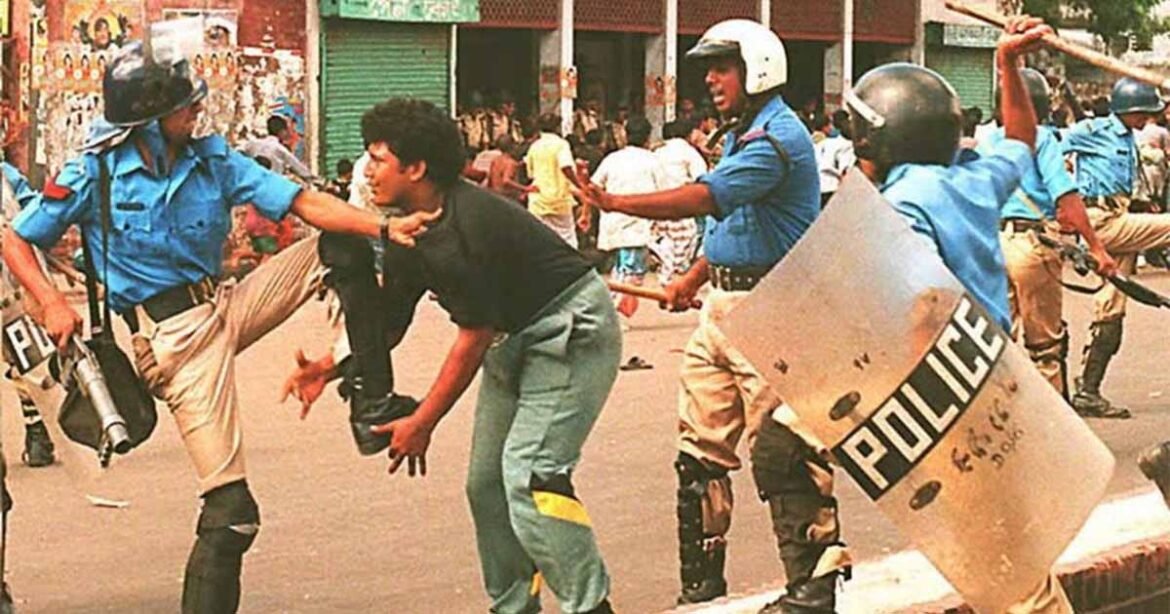The main opposition, Bangladesh Nationalist Party (BNP) has been demanding for caretaker government system, and threatens to boycott Bangladesh general elections in 2024 if demand is not fulfilled. BNP politicians and pro-BNP civil and political analysts, have been endorsing the caretaker government system in speeches and reviews in a way as if the present government have staged a coup d’état to derail democratic process. Whereas, BNP’s “fixed” election histories and politics were few of the reasons for the elimination of this system. Prime Minister Sheikh Hasina has already made it clear by saying, “Those who want caretaker government, they themselves have distorted this system,” in an international interview.
You can also read: IS BANGLADESH READY TO FACE ANY MORE WAR CRISIS?
Now, let’s have a flashback on the causes of abolishing caretaker government as the system had comprised with the nation’s progress in every sector.
What is Caretaker government?
The concept of a Caretaker Government is familiar in developing nations like Bangladesh, as well as developed nations like Europe and other western nations. In general, a Non-Party Caretaker Government is the administration that assumes responsibility for running the government during an interim period. A government of this type is prohibited from adopting any new legislation, policies, or expenditure commitments.

How Caretaker government was introduced?
Magura-2 constituency by-elections were conducted on March 20, 1994. Election results were heavily manipulated in favor of the BNP candidate. BNP had surpassed every record for vote-tampering by seizing the center, forcibly sealing ballot papers, expelling polling agents of Awami League candidates, and looting ballot paper boxes. In 1996, after a massive Awami League led movement in response to massive election fraud in the Magura by-election, a caretaker government was established under the constitution.
Objective of introducing Caretaker government to Bangladesh
In Bangladesh, the Caretaker Government (CTG) system was developed as a progressive notion. In order to organize free and fair elections for the national Parliament, the Thirteenth Amendment of the Constitution of the People’s Republic of Bangladesh was adopted in 1996. In the first fifty years of Bangladesh’s independence, just three parliamentary elections (1996, 2001, 2008) have been conducted through the CTG system.
One of the most inherent reasons for implementing the CTG was the idea that conducting elections under the CTG would guarantee free and fair elections. Allegedly, elections under party governments were not free from corruption. Bangladesh Awami league was also one of the most vocal advocates to integrate CTG in the hopes of a fair election and keeping people’s faith in democracy.

Why caretaker government had failed?
On June 30, 2011, National Parliament passed the 15th amendment to the constitution, thereby eliminating the CTG. The objective behind a caretaker government was to have a government in place that was not connected with any political party to ensure cohesiveness of government throughout the election.
Several factors have raised doubts on the legitimacy of the caretaker government. The losing party, let it be BNP or AL, has never viewed an election conducted by the caretaker government as fair and unbiased. The allegation of vote-rigging under the CTGs have nullified the first reason for the system.
The technocratic nature of formation of CTG without a popular mandate has also politicized our civil administration. The provision of a former Chief Justice as Chief Adviser in a caretaker government system led to not just partisanship but also corruption in the Judiciary. The image of Justice Latifur Rahman’s interim government had been damaged by its partisan stance.
In 2006, US Ambassador to Bangladesh Patricia Butenis remarked in a seminar that the caretaker government has not always played an impartial role, causing the entire nation to suffer. The United States had urged the caretaker administration to play a more neutral role in the approaching general elections in Bangladesh.
Dr. Iajuddin Ahmed assumed leadership of the interim administration while serving as president. He left the government’s neutral and nonpartisan structure in a highly contentious state. Because the caretaker government led by Fakhruddin Ahmed kept power for two years in a row instead of its mandated 3 months, the concept of caretaker government was questioned. The political crisis that engulfed during the caretaker government between 2006 and 2008, backed by power hungry military officials have demonstrated the fact without its main attributors, the politicians, democracy suffers with the nation in entirety.
In addition, whenever CTG existed, the country has seen a string of calamities in almost every sector.
Citizen’s sufferings:
Throughout CTG, the citizens had endured great hardships as a result of political instability, violence, and curfews. In 2007, politicians and businessmen suffered psychologically, socially, politically, and monetarily as a result of the harassing actions of the military-backed caretaker government. Citizens were concerned about the potential unconstitutional “caretaker” administration.
According to them, if there were a constitutional government, they would be able to speak out against unfairness and harassment to political and administrative leaders. Nevertheless, this was impossible under an unconstitutional government since unconstitutional governments are not accountable to the people. During the period of unconstitutional rule, they never received a cure for injustice.
Furthermore, prominent businessmen were targeted in numerous ways. At that time, an uncommon circumstance reigned throughout the nation. Due to extortion, numerous leaders and businessmen fled the nation. During that period, several opportunistic politicians joined forces with the unconstitutional government for personal benefit, causing residents further distress.

Misuse of National security:
The Caretaker government was responsible for numerous patterns of human rights violations. The police, RAB, Joint Forces, security, and other law enforcement agencies continued to violate human rights with the order of CTG. Contrary to reality, the CTG had reported that the number of extrajudicial killings had decreased in 2007.
In addition, the CTG utilized the consistent and widespread practice of preventative detention without charge or trial to jail critics and political opponents under several regimes. It had utilized the Special Powers Act (SPA) to arrest famous officials and businessmen accused of corruption-related crimes, as well as journalists and others accused of bombings.
The SPA applied to crimes outlined in the Emergency Powers Regulations (EPRs) of 2007, which granted law enforcement agencies broad powers. Defendants accused under the EPRs were automatically denied a variety of legal protections, including bail.
Effect on education:
Continuous hartals and curfews had a significant impact on education throughout the nation. In 2007, for the first time since 1991, Bangladesh’s literacy rate experienced negative growth. The literacy rate fell by 0.82 percent from the previous year. In response to rising unrest, the caretaker administration imposed an indefinite curfew in six divisional cities and ordered students to vacate all universities and colleges in the country and metropolitan areas. The instability caused education to decline throughout the nation.
Effect on economy:
In the midst of violence, riot, crisis, and curfews, businesses experienced economic loss. The GDP growth rate of Bangladesh fell to -0.6% in 1996, 1.24% in 2001, -1.05% in 2008, and -0.9% in 2009. CTG had also extorted significant sums of money from organizations by exploiting its influence. During the state of emergency from April 2007 to November 2008, the anti-corruption task force of the caretaker government illegally extorted Tk 1,232 crore from various persons and organizations. Later in 2017, the High Court also determined that the caretaker government’s use of these money was unlawful.
Budgetary mismanagement reduced national healthcare expenditures by 0.05 percent of GDP, which also threatened the heath sector.
Political instability:
In 2001, the BNP-Jamaat coalition administration attempted to remove the caretaker government. BNP-Jamaat even developed a strategy to increase the age requirement for the position of Chief Justice and make KM Hasan the interim government’s leader. As consequence, the entire structure of caretaker government was effected.
Both the caretaker administration of 2006 and the caretaker government backed by the army in 2007 were controversial. Moreover, on January 12, 2007, Fakhruddin Ahmed was sworn in as an army-backed caretaker government and appointed ten advisers. The military-backed caretaker government began operating by announcing a crackdown on corruption and the establishment of political stability. Under the guise of combating corruption, the army-backed caretaker administration initiated a crackdown against politicians. Politicians were defamed using various types of propaganda. Following the minus two formula, Sheikh Hasina, president of the Awami League, and Khaleda Zia, chairperson of the BNP, were detained for charges against them. Later, investigations showed that most of the cases were made up. The attempt was to tarnish their image in public.
Death tolls and crime rates during CTG:
During CTG, many politicians, political workers and common people had died and got severely injured. In 1996, around 49 people, in 2001, 500 people, and in 2007 to 2008, around 11 people were reported of being dead. Human rights organizations claim the number of casualties to be higher.
The crime rate at the time of CTG was high as well. In 2001, the crime rate rose to 0.21 points and in 2008, it climbed to 0.13 points.

Why do we no longer need caretaker government?
The caretaker government system was abolished in Bangladesh in 2011, and since then, general elections have been controlled by the incumbent government. The decision to eliminate the caretaker government system was made following repeated election fraud and was justified by multiple arguments.
“Rigged” system:
The caretaker government system had become increasingly controversial and was viewed as a tool for political manipulation. Political parties frequently attempted to influence the caretaker government to secure favorable election outcomes by abusing the system. This led to accusations of unfairness and favoritism and damaged the electoral process’s credibility.
Undemocratic:
The caretaker government system was deemed undemocratic since it required the assumption of power by an unelected authority, which was contrary to the norms of democratic government. By eliminating the caretaker government system, Bangladesh was able to assure that the democratic process would not be disrupted and that the elected government would continue to govern until the next election.
Strong democratic institutions:
Bangladesh’s democratic system is robust, with well-established institutions such as the Election Commission, law, parliament, and press. These institutions have historically played a vital role in ensuring free and fair elections. The Electoral Commission is an impartial organization charged with organizing elections and ensuring that they are conducted in a free and fair manner. In addition, the Judiciary is independent and serves an essential role in protecting the rule of law, which is essential for a democratic society.
Better electoral system:
Over the years, Bangladesh has made tremendous progress in improving its voting system. The implementation of electronic voting machines (EVM), voter identification cards, and biometric registration has helped to prevent electoral fraud and provide a transparent voting process.
Political stability:
In recent years, Bangladesh has had political stability, which has helped to enhance the country’s general governance. The smooth transition of power between the two largest political parties, the Awami League and the Bangladesh Nationalist Party, has proved the strength of the country’s democratic system. The recent voices of both parties are proof of an active election campaign and ensures participation of both parties.
PM Sheikh Hasina is leading the country ahead and making it a role model for the world by fostering Bangabandhu’s ideas. With her tenacity and insight, the nation has flourished in every sphere. In light of CTG’s failure, placing authority in their hands would spell disaster for both Bangladesh and the “Smart Bangladesh” initiative. Moreover, there should be no possibility of reinstating the controversial system that the Supreme Court of the country has ruled unconstitutional.


